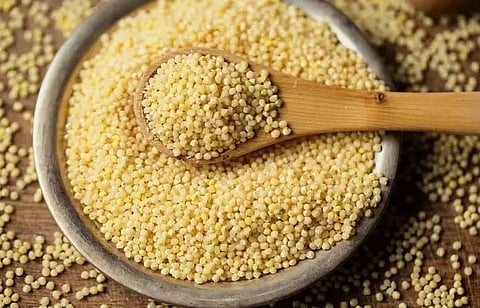
- Home
- Live Blog
- Breaking News
- Top Headlines
- Cities
- NE News
- Sentinel Media
- Sports
- Education
- Jobs

Millets, a diverse group of small-seeded, hardy grains, have been an integral part of India's agricultural landscape and dietary traditions for thousands of years. Because of their resilience and suitability for India's varied agro-climatic conditions, millets require little in the way of inputs and water to thrive. India is the highest producer and consumer of millets worldwide. Its leadership in mainstreaming millet production and consumption opens practical solutions to addressing global hunger and malnutrition.
Prime Minister Narendra Modi had declared 2023 as the Year of Millets as did the United Nations. The hardy grains have been at the front of the Indian government’s food push throughout this year. It was also the highlight during the G20 Summit. A special menu featuring Millets dishes was served to the delegates who attended the G20 Summit in Delhi. Recently, the government has announced that it plans to increase the procurement of millets threefold to 2 million tonnes in this financial year.
Here are 5 reasons why you should add millet into your daily diet:
Nutritional Significance: Millets are an excellent source of protein and dietary fibre, and they are high in important minerals including iron, calcium, and phosphorus. They are also a great option for people with dietary restrictions and gluten sensitivity as they are a healthier substitute for commonly used cereals like wheat flour and all-purpose flour.
Environmental Impact: In comparison to other high-input crops, millets have a reduced carbon footprint, which implies they demand less irrigation and synthetic fertilizer, making them a good choice for farmers in developing countries, where poverty and environmental degradation are major factors.
Promotes Sustainability: Beyond their nutritional value, millets contribute significantly to sustainable agriculture that enhances soil health and biodiversity. In addition to enhancing agricultural land's long-term productivity, this serves to conserve the environment. Due to their low water requirement, their ability to thrive in semi-arid conditions makes them ideal for regions facing water scarcity, contributing to water conservation in agriculture and promoting food security. (IANS)